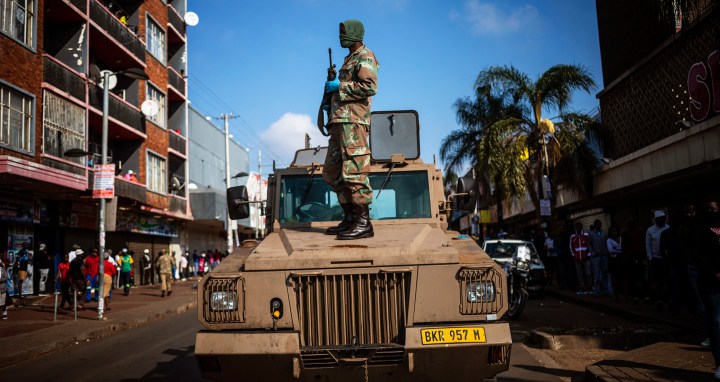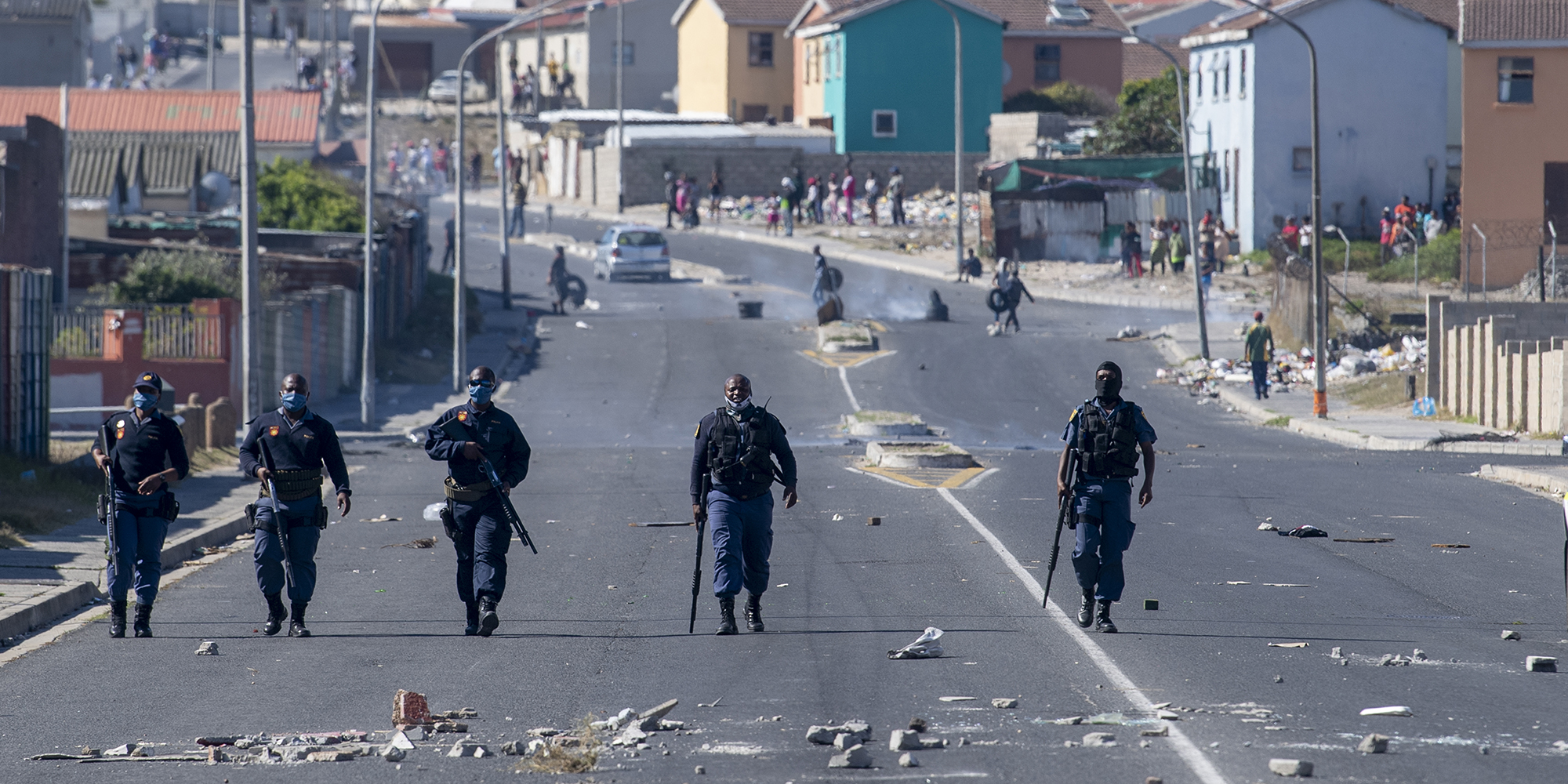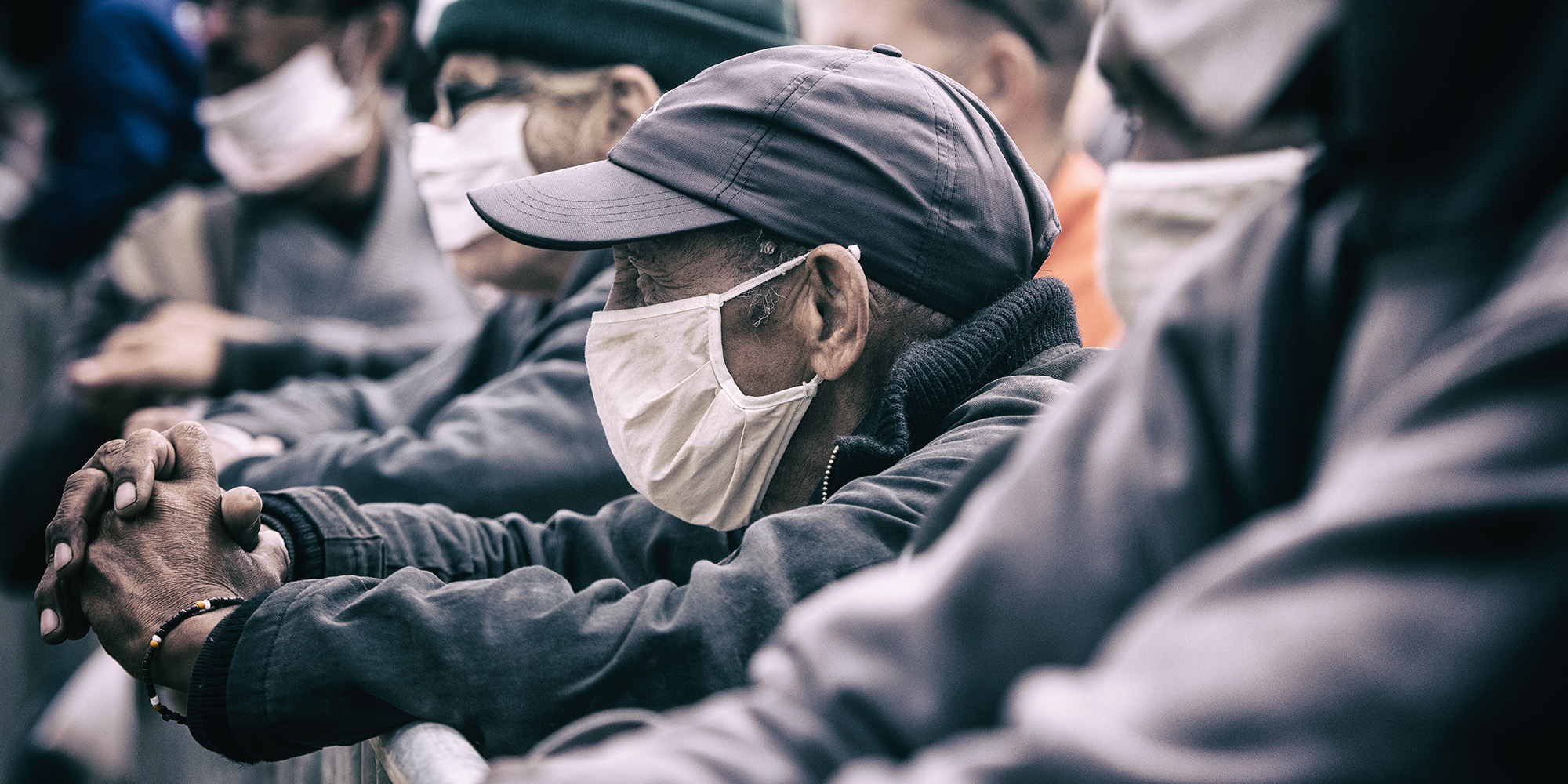ANALYSIS
Surveys paint a picture of a nation in pain

The most worrying findings are about food and the economy. This shows how important it is to get money and food to those who need it. There is also a disturbing level of support for the police and SANDF’s heavy-handed approach.
Two surveys about the government’s response to Covid-19 and the lockdown were released at the weekend. Crucially, they show that almost a quarter of people in South Africa don’t have money to buy food. The message was clear: people need help, and they need it now.
They also show strong support for the ban on the sale of alcohol and cigarettes. Disturbingly, however, there is also support for the police and SANDF’s strong measures to enforce the lockdown.
The bigger piece of work was published by the Human Sciences Research Council on Sunday – a survey run over several weeks about attitudes to the lockdown, and the situation that people are in now. The second survey was by Victory Research and published in the City Press and Rapport newspapers on Sunday.
The most worrying findings are about food and the economy. The HSRC survey found that 24% of residents have no money to buy food. Of those polled, 63% say the lockdown will make it difficult to pay their debts and 45% say it will make it difficult for them to keep their jobs.
This shows how important it is to get money and food to those who need it. It underscores how correct the increases in social grants announced last week were. And it shows how crucial it will be to ensure that these measures are properly implemented.
While it seems certain the increases in the child-care grant and other grants will be relatively straightforward to process (because the beneficiaries are already in the system and receiving money into their bank accounts), the real problem is going to be the one-off grant for the unemployed. Recipients are not yet registered for this. For the moment, it seems the only possible way to do this is to use an SMS system on cellphones. Even that will be problematic and might well see some people benefiting who technically should not, and large swathes of those in need missing out.

Residents in Mitchells Plain clash with police over food parcels on Day Nineteen of National Lockdown on April 14, 2020 in Cape Town, South Africa. (Photo: Gallo Images/Die Burger/Jaco Marais)
One of the more contentious points in the research is around obeyance of the lockdown. The HSRC claims that 99% of its respondents say they had only left their homes to get food, social grants and medicines.
While this may well be what the respondents said, it cannot be true.
Simply driving on a short journey will reveal this. There is plenty of reporting from television channels about how people have been moving about during this time. One memorable report on Newzroom Afrika showed an SANDF vehicle and soldiers moving through Alexandra. As they moved through an area one Sunday afternoon at the start of the lockdown, people rushed off the streets and into their homes. As the camera panned down a hill and up the other side, people could be seen back in the street as soon as the vehicle passed through.
It is impossible to believe that people in Diepsloot and other informal settlements have been sitting in their shacks for an entire month.
Some of the information about how people have interacted with the security forces and the police is fascinating, along with people’s attitudes to this.
The HSRC survey says that 74% of people have had no contact with law enforcement during this time.
However, out of that survey also comes the information that 14% of people have been treated by those officers in a “rough or rude” manner. This is hugely problematic: more people have been treated badly by police or soldiers than people who were treated well (only 10%, according to the survey).
This means that soldiers and police are behaving badly and in an abusive manner, which runs the risk of undermining the lockdown’s legitimacy.
Various groups of people were asked different questions in the Victory research.
There, 51% of respondents said they were “in favour of excessive force” and 30% said the use of action that resulted in “humiliating people” who broke the regulations was acceptable. This is a reference to the exercises that soldiers and police officers have been forcing people to do when they were found to be breaking the regulations.
The survey also found that 16% of respondents believed the use of sjamboks was acceptable.
This reveals a double standard. People are perfectly happy for extreme and undemocratic measures to be used on others, but complain when they themselves are treated in a “rough or rude” manner.
It also suggests that there is still a streak of thinking related to our apartheid past. It is difficult to believe that almost anyone in Denmark or Sweden or the UK would find the use of a sjambok acceptable. This is because violence by police officers has not occurred there on a large scale within their living memories (although some will remember The Troubles in Northern Ireland and incidents involving protests by black people fighting for equal treatment in Brixton, London, and Toxteth in Liverpool in 1981).
In South Africa, unfortunately, violence is very much a part of our recent history and current reality. While the country has changed on paper, it takes much longer to alter culture and behavioural patterns and attitudes. Certainly, the use of a sjambok, violence or exercises and humiliation is illegal. But they all occur, and many people seem to feel that’s no problem.

A general view of displaced people who were moved from all around Western Cape to a temporary shelter at Strandfontein Sports Field on Day Ten of National Lockdown on April 05, 2020 in Cape Town, South Africa. (Photo: Gallo Images/Brenton Geach)
This could well change if police and soldiers start doing this on a bigger scale and more people feel the pain personally.
The surveys also appear to confirm what many have suspected, that there is now very strong support for President Cyril Ramaphosa. The Victory research shows that he currently has an approval rating of 67%. This is to be expected, as he has given many people the impression that he understands the problems we are facing, and is working on trying to resolve issues as they appear. He has also shown that he is willing to consult widely.
It is important to note here that his government has consulted on the economic response to the pandemic and the lockdown (the economic stimulus was the result of consultations at Nedlac) and is now consulting on the regulations of each stage of the lockdown.
But the president’s high approval rating may not last. In times of crisis such as this, a few wrong moves could change everything. And the decisions that Ramaphosa and his government have to make will only get more nuanced and complicated.
One of the more interesting and important aspects of these polls was the nation’s position on alcohol and tobacco restrictions. Fully 71% of those surveyed in the Victory research say they support the ban on booze and 65% agree that cigarettes should not be sold. Despite that, it seems that cigarettes might be sold from Friday, as SA enters Stage 4 of the lockdown.
This demonstrates why policy cannot be made simply through public attitudes.
The tobacco lobby was saddling up for court, and it may well be that the government was worried about losing such a case. That would open the floodgates for other cases (for example, is it rational to say that Takealot can legally deliver some products and not others, and yet DTI Minister Ebrahim Patel is accused of having said just that?)
The alcohol lobby may follow. The banning of wine exports is another legal challenge waiting to happen. The test there is not so much about public opinion but the letter of the law. Of course, if higher levels of crime are to follow, public attitudes on this issue might harden further.
The information from these surveys will help the government formulate its responses to the problems the virus and the lockdown create. However, it’s a double-edged sword.
Public policy during a pandemic cannot be made through research about public attitudes. Sometimes it takes weeks and months to correctly assess the nation’s mood, and sometimes the measures are medically necessary regardless of the people’s opinion. To follow public attitudes would see a permanent ban on alcohol, and yet history shows how that leads to an explosion in organised crime (as happened during Prohibition in the US).
Leadership and consultation are crucial. So far, Ramaphosa’s approach is working. But, until now, the lockdown has been easy to understand: don’t leave the house unless you are an essential worker or getting food, medicine or a social grant.
It is about to get much more complicated, which increases the scope for confusion, arguments and court cases. The government may soon find things getting a lot more difficult. DM

















 Become an Insider
Become an Insider